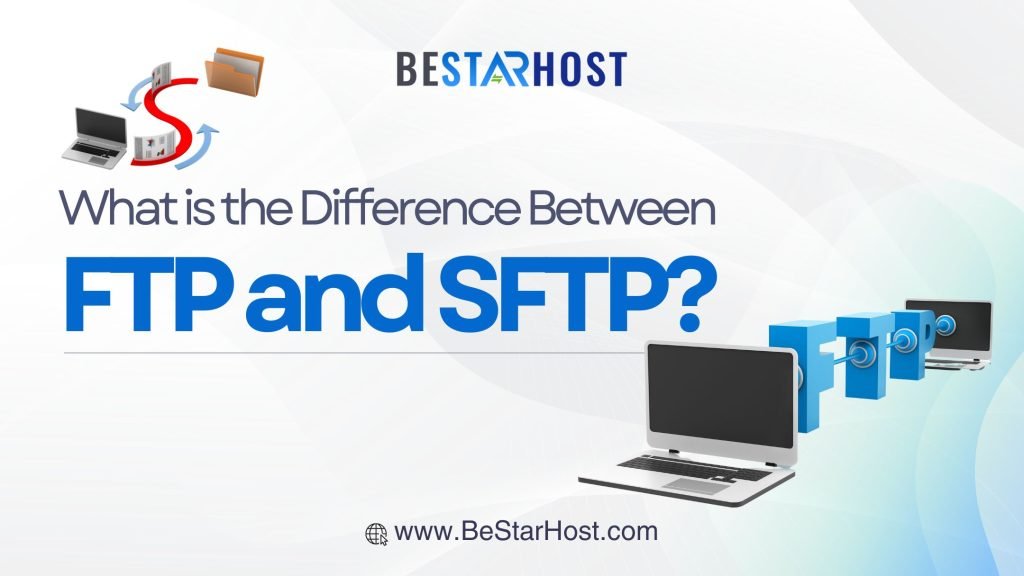 Introduction:
Introduction:
In the vast realm of file transfer protocols, FTP (File Transfer Protocol) and SFTP (Secure File Transfer Protocol) stand out as two prominent players. While both serve the fundamental purpose of transferring files between computers, they operate in distinct ways, each with its own set of advantages and security features. In this comprehensive exploration, we will delve into the key differences between FTP and SFTP to help you make an informed choice for your file transfer needs.
Understanding FTP:
FTP, or File Transfer Protocol, has been a staple in the digital landscape for decades. It is a standard network protocol used to transfer files from one host to another over a TCP-based network, such as the internet. FTP operates on a client-server model, where the client initiates a connection to the server to upload or download files.
Key features of FTP:
- Legacy Protocol: FTP has been around since the early days of the internet and has a long history of use.
- Authentication: FTP typically relies on a username and password for authentication. However, this information is transmitted in plain text, posing a potential security risk.
- Data Encryption: FTP does not encrypt data during transfer, making it susceptible to interception by malicious entities.
Understanding SFTP:
SFTP, on the other hand, is an extension of the SSH (Secure Shell) protocol, designed to provide secure file transfer capabilities. Unlike FTP, which lacks built-in security features, SFTP encrypts both the authentication credentials and the data being transferred, ensuring a higher level of security.
Key features of SFTP:
- Security: SFTP is renowned for its robust security measures. All data, including authentication details, is encrypted, reducing the risk of unauthorized access and data breaches.
- Authentication: SFTP utilizes SSH key pairs for authentication, adding an extra layer of security compared to FTP’s reliance on username and password.
- Portability: SFTP operates on a single port (usually port 22), simplifying firewall configurations and making it suitable for environments with strict security policies.
Comparing FTP and SFTP:
- Security Concerns: The most significant distinction between FTP and SFTP lies in their security features. FTP transmits data and authentication details in plain text, while SFTP encrypts all communication, providing a secure environment for file transfer.
- Authentication Methods: FTP relies on traditional username and password authentication, which may be vulnerable to brute force attacks. SFTP, however, leverages SSH key pairs, offering a more robust and secure authentication mechanism.
- Portability and Firewall Compatibility: SFTP’s use of a single port simplifies firewall configurations, making it more adaptable to environments with stringent security protocols. FTP, with its separate command and data channels, may require additional ports to be open, potentially posing challenges in firewall setups.
Conclusion:
In the eternal debate of FTP versus SFTP, the choice ultimately depends on your specific requirements and the importance you place on security. While FTP has a long-standing history and is still widely used, SFTP has emerged as the preferred choice for those seeking a secure file transfer solution. As data security becomes increasingly paramount in the digital age, the adoption of SFTP is on the rise, ensuring confidential information remains protected during transit. Whether you prioritize legacy compatibility or cutting-edge security, understanding the nuances of FTP and SFTP will empower you to make an informed decision tailored to your unique needs.
BestarHost’s SFTP services emerge as a top-notch choice. With a focus on data security, BestarHost ensures that your confidential information remains protected during the entire transfer process. By leveraging the robust security features of SFTP, including encrypted data transmission and SSH key pair authentication, BestarHost goes above and beyond to create a secure environment for your file transfer needs.
Choosing BestarHost means embracing a service that prioritizes not only the efficiency of file transfer but also the safeguarding of sensitive information. As the digital landscape evolves, the significance of secure file transfer becomes increasingly apparent, and BestarHost stands at the forefront, providing cutting-edge SFTP services that align with the highest standards of data security. Make the smart choice for your file transfer requirements—choose BestarHost and experience the peace of mind that comes with a secure and reliable SFTP solution.
